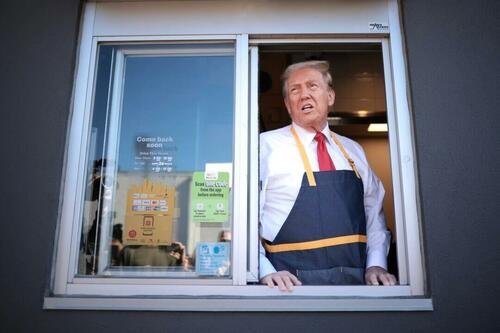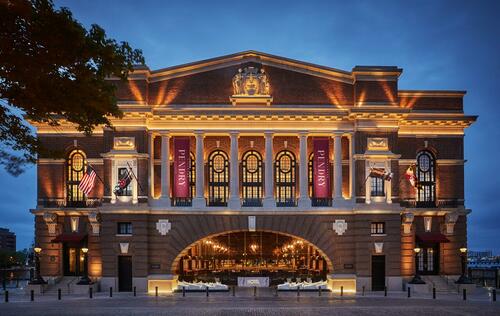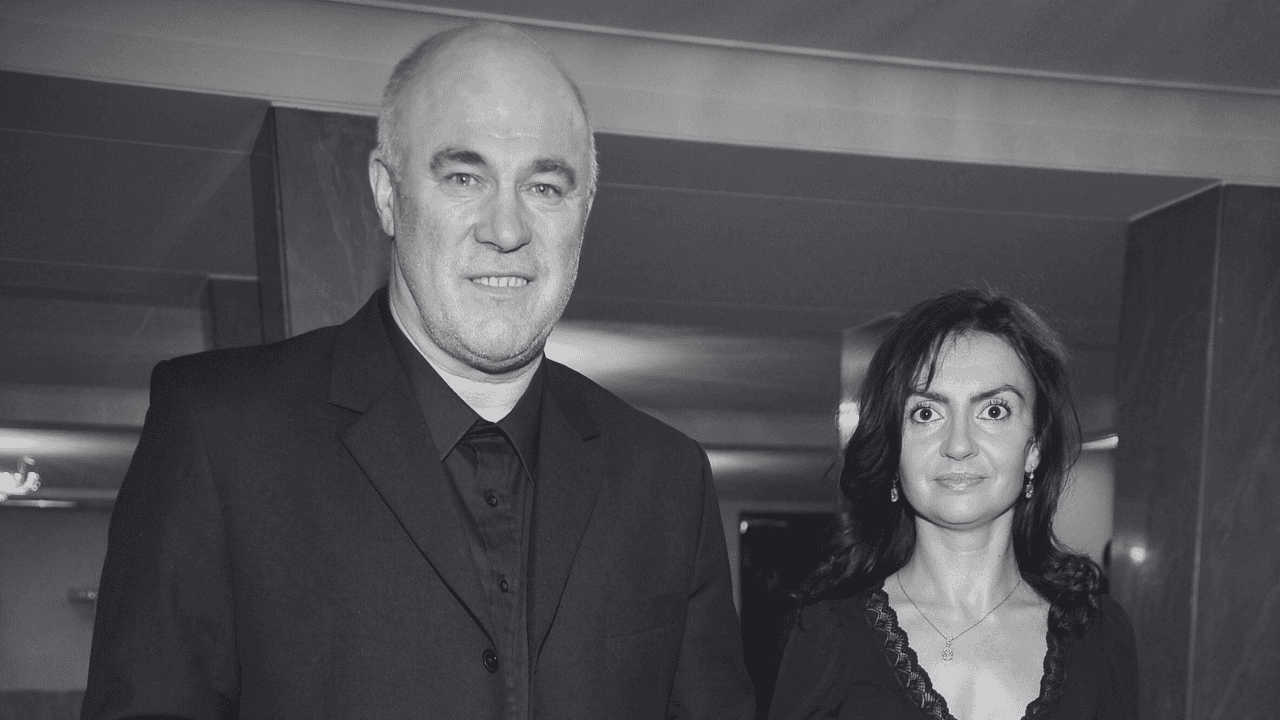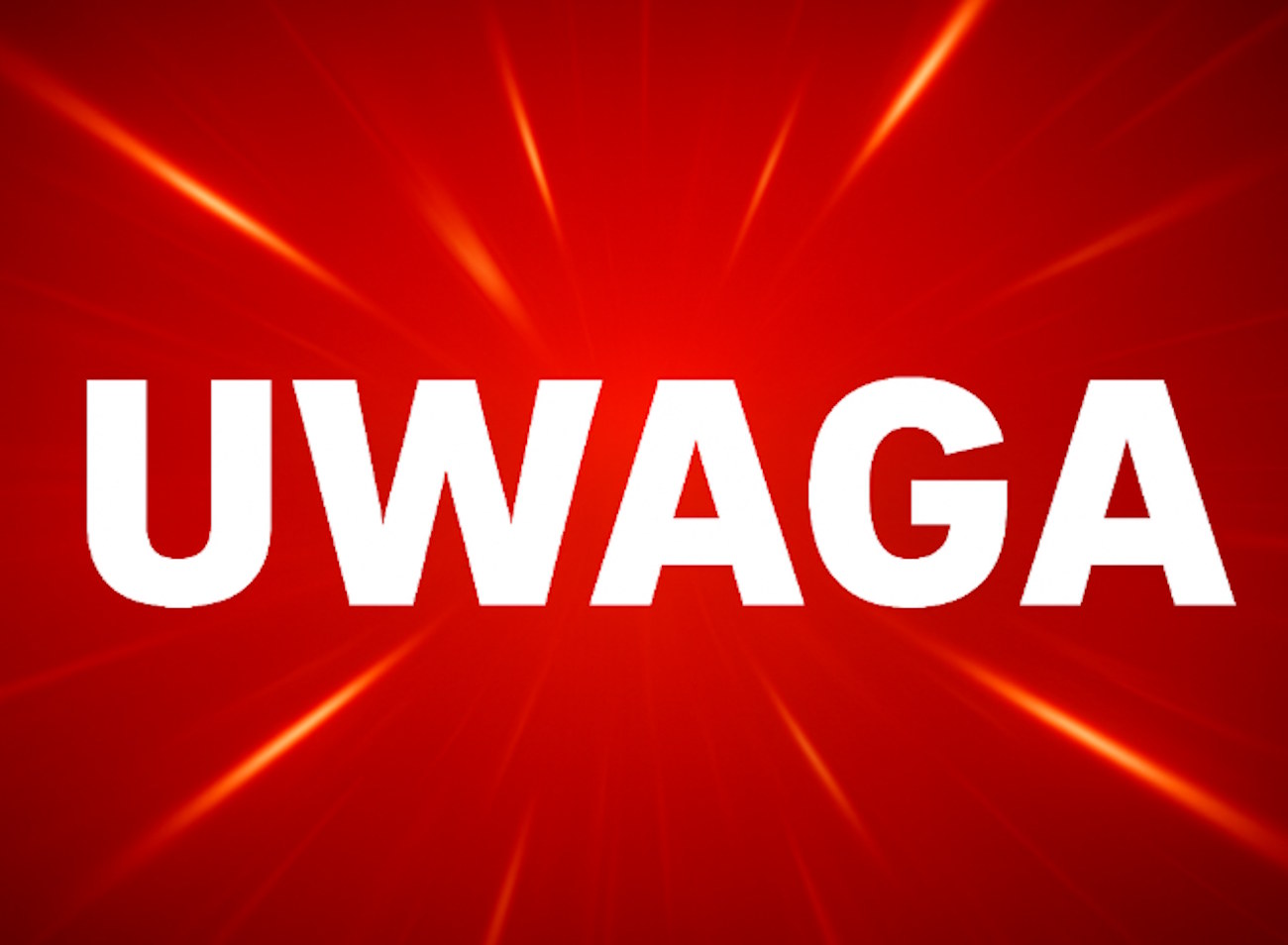
From Vision To Reality: McDonald’s, Regenerative Agriculture, & A Cultural Shift
Authored by Ryland Engelhart via The Epoch Times,
Let the beauty we love be what we do.
There are hundreds of ways to kneel and kiss the ground.
Story continues below advertisement
—Rumi
This line inspired the founding of Kiss the Ground, a nonprofit built on the belief that caring for the Earth begins with the soil beneath our feet.
At the time—around 2010—“regenerative agriculture” was barely on the map. It wasn’t in the media, taught in schools, or considered in major corporate or political circles. It was more of a whisper, an idea that human beings could work in harmony with nature and restore what had been broken.
In 2020, that idea reached the world stage through the Netflix documentary “Kiss the Ground,” narrated by Woody Harrelson. The film introduced more than 10 million people to the concept of soil regeneration as a way to achieve climate resilience, economic revitalization, and ecological balance. The recently released sequel, “Common Ground,” now streaming on Amazon Prime, expands the conversation with the voices of ranchers, farmers, scientists, and policymakers across the political spectrum.
And now, in a moment that few of us could have predicted 15 years ago, the largest fast-food chain in the world has joined that conversation. McDonald’s has committed $200 million to regenerative agriculture.
Fifteen years ago, I was building a nonprofit website in the back alley of our Venice bungalow, not far removed from the moment I first heard the term “regenerative agriculture” on a trip to New Zealand. If you searched it on Google then, the results were sparse. Maybe a TED Talk by Allan Savory and a couple of obscure blogs.
I still remember giving a TEDx talk at UCLA, clutching my cue cards, and saying: “Imagine if companies like McDonald’s, General Mills, or Dole transitioned from conventional to regenerative agriculture.”
It was a dream. A reach. A seed of possibility. Today, that seed has sprouted.
McDonald’s USA announced its investment through a program called the Grassland Resilience and Conservation Initiative. The initiative is a partnership with the National Fish and Wildlife Foundation, the USDA’s Natural Resources Conservation Service, and McDonald’s beef suppliers.

The goal is to restore and steward up to 4 million acres of U.S. rangeland using regenerative grazing and land management practices that improve soil health, increase biodiversity, and protect water systems.
Of course, it is reasonable to ask questions and ensure accountability. But this is not a small gesture. This is real capital moving toward real stewardship from one of the most iconic American brands.
This is not a finish line. But it is a watershed moment for agriculture, for policy, and for culture.
Those who have followed my path know I was a supporter of Robert F. Kennedy Jr.’s presidential campaign. I was drawn to his decades of environmental advocacy, principled independence, and willingness to speak uncomfortable truths.
What I did not expect was the surprising political turn: RFK Jr. joining forces with Donald Trump, leading to the Make America Healthy Again movement, a call to revitalize the nation’s food system, farming communities, and natural resources.
* * * Speaking of regenerative farming * * *

Then came the images: Trump in a McDonald’s apron, handing out fries at a drive-through. A photo aboard Air Force One, where Trump, RFK Jr., and Elon Musk shared a McDonald’s meal.
To many, this looked like contradiction or satire. To me, it represented something real. Culture often shifts through unlikely alliances. You may not expect soil health to emerge from a fast-food window or a presidential jet, but that is where the cameras were. That is where the conversation reached millions.
We are not celebrating fast food. We are asking it, and those who lead it, to take responsibility. We are not aligning with political celebrities. We are aligning with the land, the farmer, and the possibility of restoration.
So when McDonald’s, a symbol of industrialized food, pledges $200 million toward ecological restoration, it is not just about optics. It is a signal that regeneration has entered the mainstream, and that stewardship is no longer limited to niche circles or grassroots groups.
Yes, it is messy. Yes, it raises complex questions. But this is not about perfection. It is about progress and possibility on a scale that matters.
And yes, in some indirect way, it reflects the cultural impact of the handshake between Trump and RFK Jr., two political figures who put healthy soil, clean food, and rural revitalization into national focus.
I have never eaten a McDonald’s hamburger. In fact, I did not eat my first hamburger until I was 35. Why? Because I believed in a future where food came from the land, not factories. But I also realized that ruminants like cows, when properly managed, are one of the most powerful tools for restoring degraded land. When integrated into regenerative systems, cattle can rebuild topsoil, store carbon, and support healthy ecosystems.
This is not about ideology. It is about land-based, science-backed solutions that work.
We once scribbled the words “regenerative agriculture” on whiteboards in our garage. Now those words are appearing in corporate press releases, federal conservation initiatives, and presidential debates.
Some might call me a dreamer. But I know I am not the only one. This dream of regeneration is becoming real.
After all these years, I still believe in the good news of soil. Because this movement, at its core, is about repairing what is broken. It is about returning to principled stewardship, where the land is cared for not just for profit, but for future generations.
It is about honoring our role in creation, not as exploiters, but as caretakers.
Through microbial life, plant roots, grazing animals, and human hands, we can rebuild the very ground that feeds us.
That is the invitation. That is the responsibility. And this McDonald’s moment, unlikely as it may seem, is part of that larger story.
Views expressed in this article are opinions of the author and do not necessarily reflect the views of The Epoch Times or ZeroHedge.
Tyler Durden
Fri, 09/19/2025 – 19:15














